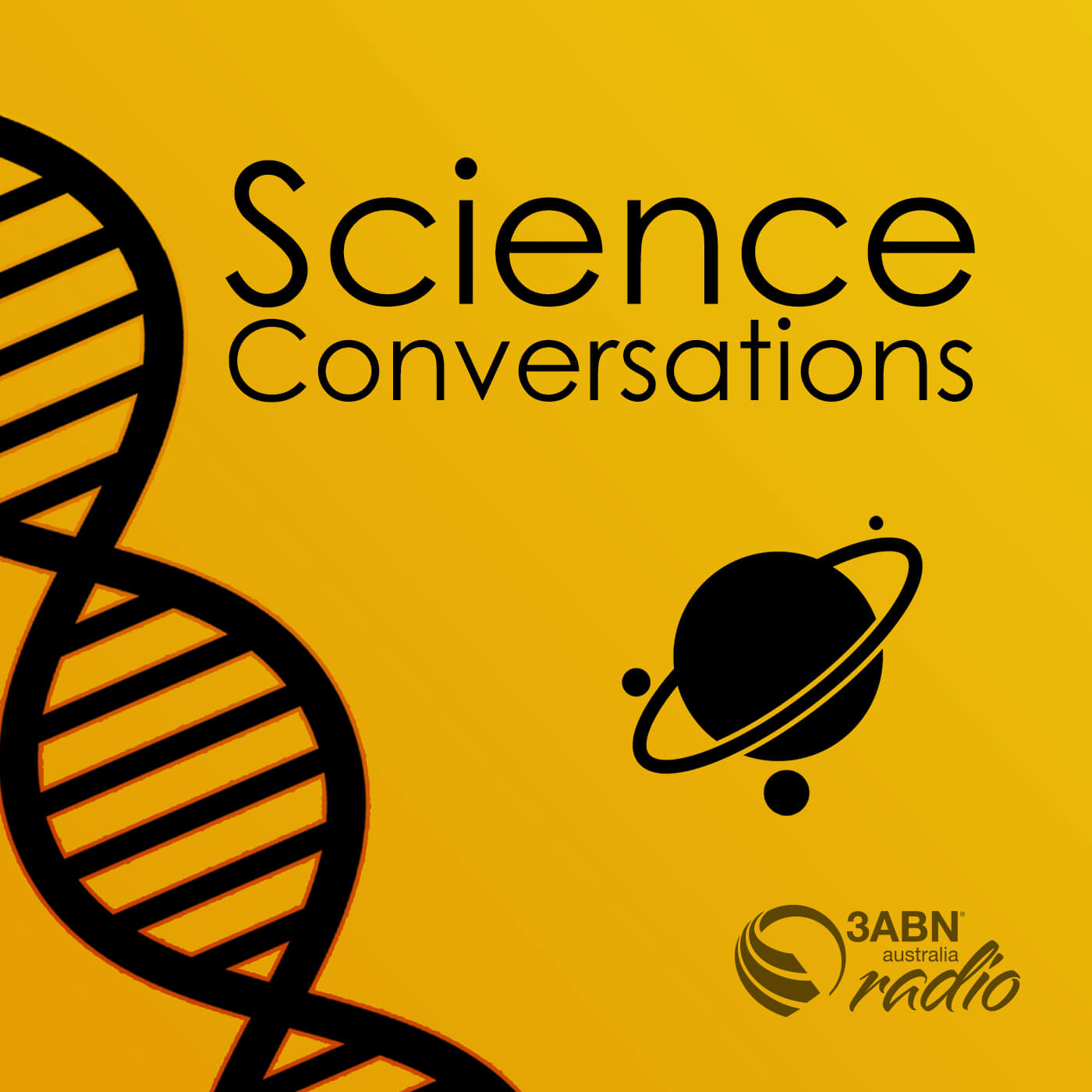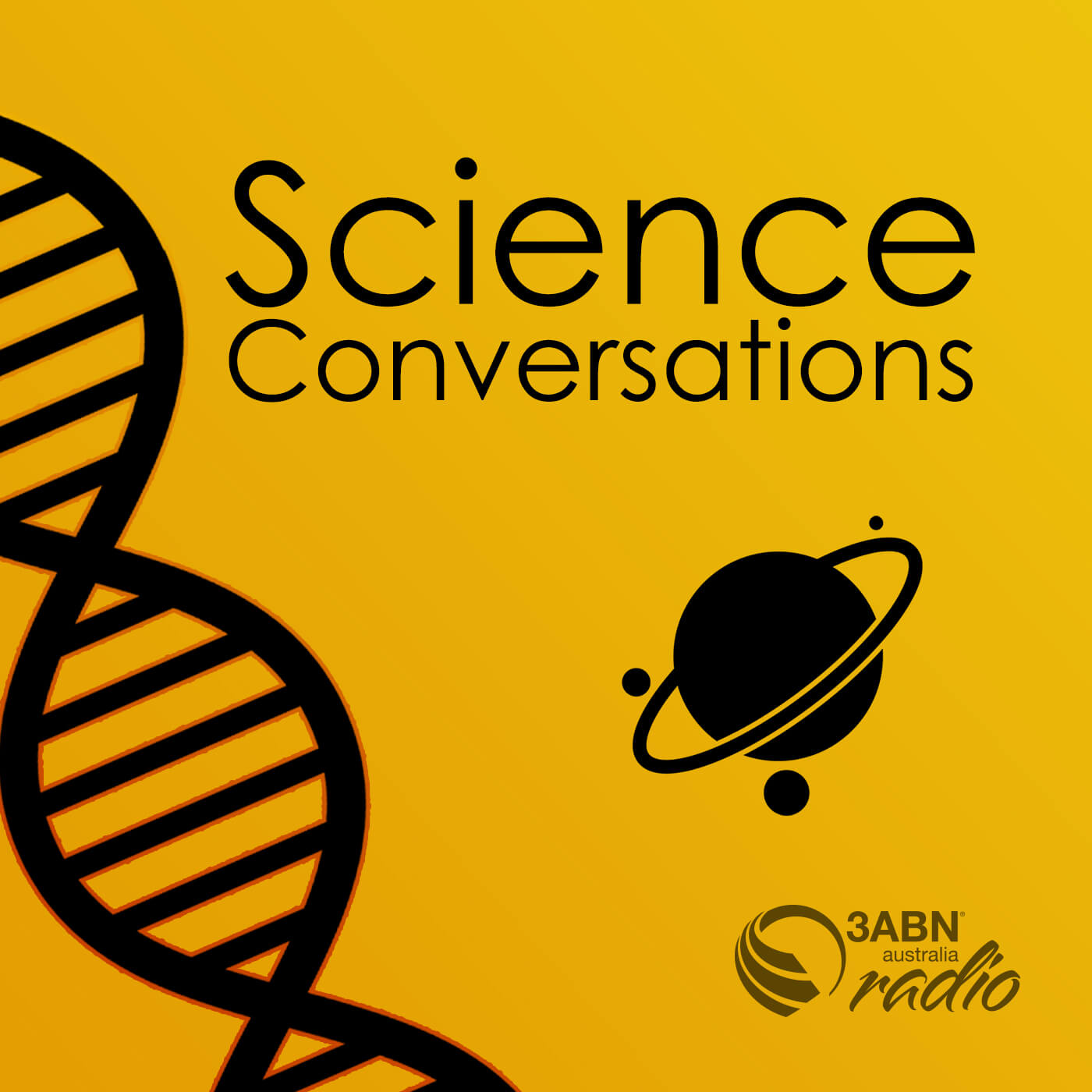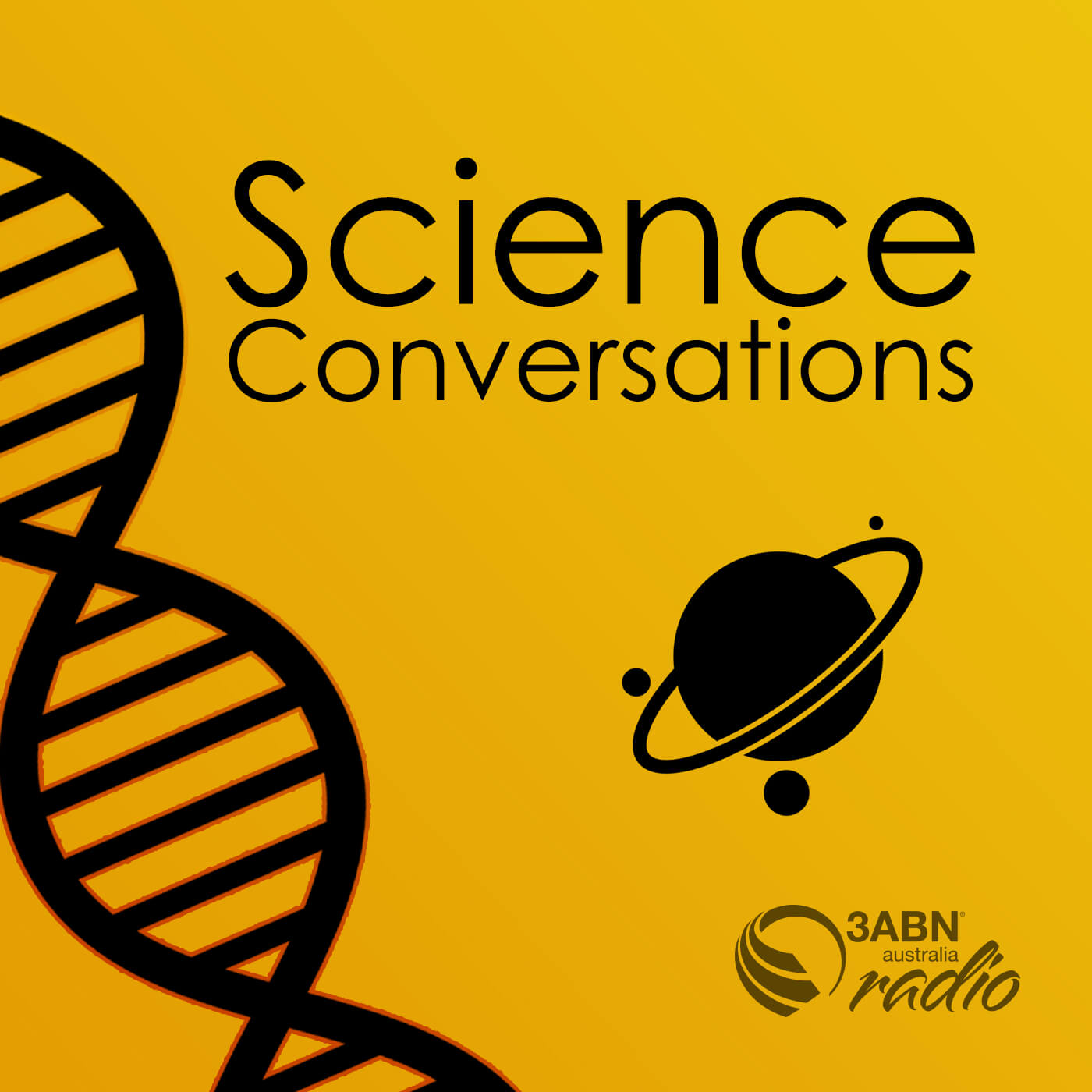Episode Transcript
Speaker A
Welcome to Science Conversations. I'm Kaysie Vokurka. This is part three, Examining the question isn't evolution a fact? We've been referring to the book Evolution 12 Reasons why Evolution Cannot Explain the Origin of Life on earth, written by Dr. John Ashton who is with me here in the studio. Welcome to the programme once again. Dr. John hello there Kaysie. Hello. So one of the first things you learn in science at school is how to make observations. And this question really begs to be asked about the whole evolutionary process. Has anybody ever observed evolution actually happening?
Speaker B
Right. This is certainly a leading question and I think some people perhaps think that they have. A lot of people confuse evolution with natural selection. So there's evolution in natural selection. So in Darwin's theory what he proposed was that there are a lot of mutations that as different species spread different environmental conditions, there are a lot of mutations in their natural selection selected or enabled the best species for survival to survive. And so for example, when Darwin went visited some of the islands off the west coast of Africa, there he, I think it was he observed wingless beetles and he noticed that the wingless beetles occurred on the windiest part of the island. And obviously when beetles that had a deformity to their wings, they couldn't fly, they were less likely to be blind off the island. They were able to survive and mate and breed and pass on that genetic defect. But what we need to understand is that that involves a loss of information. So it's a loss of information to make wings. It's not really a new type of organism, it's actually deformed. Now a lot of examples are like this that are reported in the textbooks and we observe them. For example, the loss of light coloured moths during the industrial revol, a period in England where a lot of coal fired steam powered equipment, a lot of soot on the trees and rooftops and walls and so black moths, dark coloured moths were less likely to be picked off by the birds and so they were able to breed. And so this is classic natural selection which we observe but it doesn't involve new information, it doesn't involve, it's not really evidence of evolution. Matter of fact it's the other way it reduces genetic divers, it's the opposite to evolution. But another area claim that people have observed evolution is generally in the fossil record when they look at the changes of creatures and they look at these similarity of arms and legs and different body organs and can see a gradual development. You know the classic example, worms to fish to amphibians to reptiles to birds to and then a split off to mammals and so forth through to apes and us. But these are all based on similarities and comparing different creatures and similar similarities within the plant kingdom as well. But no one has actually observed this actually happening in real time. And this is quite fascinating because when we think of the number of scientific observations that have been made, and particularly that reproduce very quickly, like bacteria who reproduce say every 30 minutes, so we can double, we still haven't observed any clear species evolving or the changes that we do observe are a result of changes in pre existing genetic information. For example, the top 10 food poisoning bacteria have evolved probably since the 1970s that we have to cope with. And that is a result of the scaling up massively of animal processing of foods and of processing of animal foods rarely, which has enabled bacteria to have very large volumes be able to reproduce. But these changes have been the result of, for example, codes for a toxin, you know, highly toxic, highly poisonous bacteria being transferred to a bacteria that was quite stable and able to survive in a. US had acid resistance genes, had adherence genes, these sort of things. But this new piece of genetic code carrying a toxin was able to be transferred by what we call a prion into the genetic information of this harmless bacteria and produce now a bacteria that would survive in US that was now highly toxic. So some of the most dangerous forms of E. Coli have evolved that way, like E coli H017 I think it is. So, but this is pre existing genetic codes that have been transferred to another organism. What we need for evolution to occur is new code forming, totally new code forming. And no one has ever observed that. And this is quite an important factor. But it's something that people don't really realise and many academics don't realise. Now I'm a professor at a couple of universities and I've worked with 10 or so Australian universities and I remember we were doing a project looking at breeding a particular grain that had very interesting properties in terms of helping to mitigate the development of type 2 diabetes. And this is because this particular grain had been developed that had a much more slowly digesting starch, which meant that again it wouldn't raise, it would take longer to raise blood sugar levels and so forth. Now how this sort of these breeding occurred was that the seeds were exposed to chemicals which would cause changes in the DNA. These change seeds were then raised and we looked for changes in these seeds that produce the needed desirable traits. Sometimes radiation is used. It was interesting when we were involved in this research, I was at one of the university meetings having Lunch with some of the guys. And I was thinking about, as a creationist, okay, how does this fit into the evolutionary picture? And I asked the senior professor there at the time at the table, and I said, look, do these mutations ever produce new, totally new genetic information? And he said, oh, yeah, sure. And I said, can you give us an example or two? And he said, he thought for a moment. He said, look, I can't give you one offhand, but ask our senior geneticist when we go back. He's on the floor upstairs. So after our business was finished, I went upstairs and spoke to the senior geneticist and asked him the same question. Do these. And he said, no, they always destroy information. And as a result of destroying in parts of the code, this may enable other operations to now take place. For example, and a classic example is antibiotic resistance. And so what require for an antibiotic to work? This is a chemical that's going to kill the bacteria. It requires a transport molecule to be available to transport that particular molecule through the membrane and into the organism. Now, if the gene responsible for making that transport molecule is knocked out, there's no way that that antibiotic now can get into the organism. So it's now become an antibiotic organism. Another classic example is the development of canola oil from rapeseed, where we discovered a mutation was discovered that had very low levels of uret acid, which is a mild toxin. And so this enabled the rapeseed now to be a more edible form. So it was the loss of that gene, it wasn't that evolution. For evolution to occur, for our fish to evolve into an amphibian, you have to have new code that actually change the fins into legs or arms. Now, this requires totally new code. You've got to change your code for a fin structure into a code for an arm or a leg. Chin Kuire's codes for all the joints, all the different cells that make up the structure of the different joints, the nerves, the muscles, the tendons, the blood circulation system. Massive amount of new code is required to make those changes. Now, the argument is that it occurs solely over time. But this requires massive changes. The changes to produce just a very small change actually require very large changes in code. The mutations are too large. It's impossible for a surv system to occur.
Speaker A
Wow. So obviously, you know, this is proposing quite a lot of challenges to the evolutionary theory. How do the community of evolutionary scientists generally respond to this kind of thing?
Speaker B
Well, often they've tried to remove people that point this out, like Dr. Gavil Avital, who was the chief scientist for the Education Department in Israel. A brilliant scientist. He was very much opposed to just the teaching of evolution. He didn't mind evolution being taught, but he said, you know, I don't want our young people to think they evolved from monkeys when we have so much evidence to the contrary. I want them to be exposed to other theories. Just after his appointment, when the other scientists realised that was his position, they were called through his resignation and he was sacked. And so this is unfortunately the sort of thing that can happen. Not all departments are like this, of course. And no, I've applied for government grants with research groups and the groups have said to me, john, I hope you don't mind, but we believe in evolution. Is that still okay? You know, they've been very accepting of my position and I'm certainly, you know, happy to defend that position. It's very interesting. In 2006 there was a lot of talk about intelligent design and there were articles published in science journals and there was an article published in Chemistry Australia where one of the leading professors of biology argued that, look, if we allow creation or intelligent design to be taught in schools, then we'd have to teach alien abduction, astrology, spoon bending, flat earth theory. And I thought, this is totally. We have, you know, trying to discredit intelligent design and creation by associating with these other things for which there is no evidence. There's massive evidence for intelligent Design and in particular creation by God. There's massive evidence and for the biblical account as well. So I decided to write an article for Chemistry Australia. It was published as a feature article, it was peer reviewed and it was published as a feature article in the April 2007 edition of Chemistry in Australia. Now, as soon as that came out, three academics from different universities in Australia, University of Sydney, University of New South Wales, University of New England, contacted the Royal Australian Chemical Institute and said this should never been published. Professor Ashton Chews made up arguments, Professor Ashton's used debunked arguments, essentially called me a liar. And so that article was withdrawn from their website. They couldn't pull back the journal, of course, it had already been posted out. As I said, that was a peer reviewed article. I cited my sources in that article as well. Now I decided to contact these guys. If I'm wrong, you show me where I'm wrong. You know, I'm a practising scientist. I've published I don't know how many peer review, but over 100 articles that I published. Most of those are peer reviewed articles, scientific papers and so I'm interested. If I'm wrong, you show me where I'm wrong. And so I decided to contact these guys. Now, two of the guys I rang, I didn't get through to them. Obviously busy. But the third guy I did get through to, I said, look, I'm John Nashton here. I understand you're not happy with my article in Chemistry in Australia. You assert that I'm wrong. Where's the evidence that I'm wrong? What evidence do you have? And his reply really blew me away. He said, well, we don't have the evidence at the moment, but we will. He admitted they had no evidence to refute my claims. They made assertions against me to the point of almost calling me a liar, but they had no evidence to refute my claims. And this is a very, very important point that I think people need to understand that leading scientists are making these assertions without a basis. We need to understand that evolution now is a wish of science. It's not a scientific fact.
Speaker A
Wow, that's quite a strong conclusion to come through, come to from talking about this. And thank you for sharing from your experience as well as from the weight of evidence that's out there that you've delved into. And I know we're going to explore so much more of that as we go through all of the chapters in your book Evolution Impossible. So thank you so much for discussing this chapter today. Finishing off the first chapter and next time we'll examine the question, what was Darwin's theory of evolution really about? So be sure to join us.


